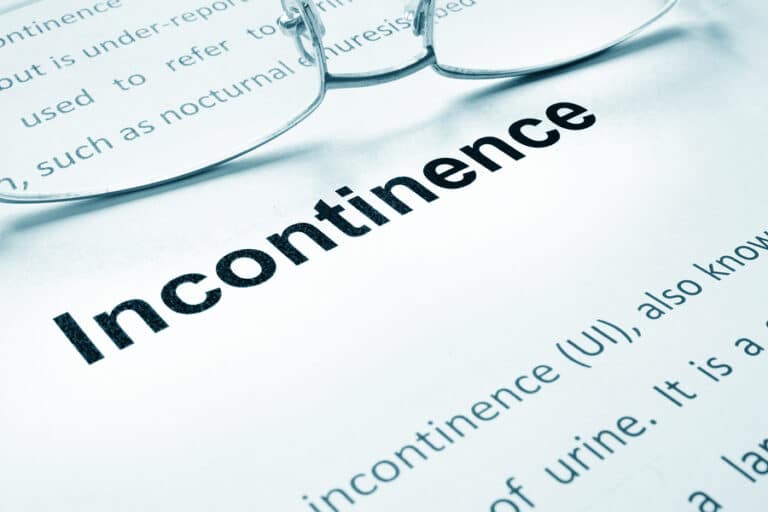Urinary incontinence is the loss of bladder control, often leading to the accidental leaking of urine.
Who is affected?
Urinary incontinence increases with age and is more common in women than in men. Moderate to severe urinary incontinence affects 32% of women over the age of 80, and women who have had a baby in their life have a greater chance of having the ailment.
Elderly people, including those in-home care, are at risk for developing urinary incontinence if they have any of the following risk factors:
• Impaired or decreased mobility
• Medication use
• Falls
• Depression
• Dementia
• Congestive Heart Failure (CHF)
• Obesity
• Stroke
Why does it happen?

When the muscles in and around the bladder don’t work properly, urine can leak. Weak or overactive bladder muscles, weak pelvic floor muscles, or damage to nerves controlling the bladder from diseases like diabetes, Parkinson’s, or multiple sclerosis can all contribute to urinary incontinence in the elderly. When pelvic organs are not where they should be, the bladder and urethra aren’t able to work properly which can cause urine to leak.
In men, blockage from an enlarged prostate, inflammation of the prostate gland, or injury or damage to the nerves or muscles from surgery can all be causes of incontinence.
Arthritis, which is not uncommon for elderly people receiving home care, can also be a contributing factor of urinary incontinence if it makes getting to the bathroom in time a difficult task.
Urinary tract infections, vaginal infection, and constipation can also cause bladder control problems that last a short time.
What can it cause?
In the elderly, urinary incontinence can cause significant morbidity from falls and fractures, as well as functional impairment, but the main symptom of overactive bladder, a type of urinary incontinence, is a sudden, strong urge to urinate that you can’t control.
What can be done?
Fortunately, urinary incontinence can often be cured or controlled.
While it can be a frustration to seniors with incontinence, professional aids hired to help with home care are specifically trained to deal with incontinence and have ideas on lessening the impact of leakage of urine while being compassionate to the situation.
Education is a large component of caregiver-dependent seniors and caregiver involvement as well as continued practice strongly affect the success of treatment.
Catheters placed by a health care provider, external collection and drainage bags, and absorbent products meant to hold urine and protect the skin are all options for treating the symptoms of urinary incontinence in the elderly at home.
As always, please talk to your senior’s health care practitioner about ways that your senior and their caregivers can make them the most comfortable in dealing with their incontinence issues while in home care.
If you or an aging loved one are considering hiring Home Care in Greenville, SC, contact Heart of the Carolinas Home Care at 864-991-3116. Providing Home Care Services in Greenville, Simpsonville, Greer, Anderson, Spartanburg, Mauldin, Seneca, Laurens, Charleston, Columbia and the surrounding areas.
source:
https://www.nia.nih.gov/health/urinary-incontinence-older-adults
https://www.urologyhealth.org/urologic-conditions/urinary-incontinence
https://www.asn-online.org/education/distancelearning/curricula/geriatrics/Chapter30.pdf
https://www.ncbi.nlm.nih.gov/pubmed/23074508
- Is it Possible to Prevent Family Caregiver Burnout? - April 25, 2025
- Home Care Assistance Helps Seniors After A Fall - April 9, 2025
- How Home Care Supports Seniors Who Are Hard of Hearing - March 28, 2025

